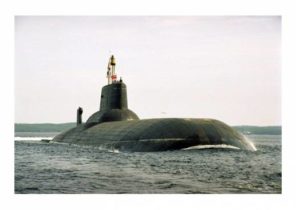
Everyone knows about the secret agreement between the representatives of France and Britain, and françois Georges-Picot and mark Sykes (of the so-called Agreement Sykes-Picot was signed may 16, 1916 — approx. ed.), according to which between the parties has occurred the partition of the Fertile Crescent (the code name of the region in the middle East and North Africa, where in winter there is an increased amount of precipitation; includes territory in the basin of the Tigris, the Euphrates and the Nile — approx. ed.). The agreement was each of the countries and the situation of the control ports.
The situation today is close to follow the same script. The section States, torn by internal conflicts, such as Syria, Yemen and Libya, is between the two major powers of the world — Russia and the United States. Each party seeks to seize natural resources, and of course, let’s not forget about the reconstruction of the region, particularly Syria. Foreign companies will pump out billions in profits, as well as from Syrian and Libyan ports in the Mediterranean sea and in the Yemen Strait of Bab-El-Mandeb.
Will omit the discussion of the causes of conflict in the middle East, those who are behind these conflicts, sectarian strife, those who do support the “Islamic state” (banned in Russia — approx. ed.), and those who support the conflicting parties in Yemen or Libya. Because in the first place should shed light on the stocks of these countries and their sources of income, who seek to usurp the major countries.
Throughout history, and today is no exception, one of the main reasons behind the outbreak of war, was what had conquered the country or the conquered tribes. For the past was relevant food resources first, then goods production, which began to invest money and gold. Profit increased in proportion to the power and authority, and the tops had honed their hegemony. Military, informational, cultural or other power has always been based on the capacity of the economy and the amount of financial resources.
Some may think that the priority of the foreign countries is Syria, but in fact, from an economic point of view, all the aforementioned Arab countries are of some interest.
Yemen
Why Yemen? Why the United States has invested in this war, millions? The answer will take many hours to explain all the reasons and what resources has a Yemen, not to mention its strategic location. Yemen represents the southern gate of the red sea, this country controls the sea corridor of Bab El-Mandeb, leading into the Indian ocean, where Maritime traffic from the Mediterranean to Asia. Through his daily runs 3.4 million barrels of oil, that is millions of dollars. A day through it freely can pass more than 57 ships, forcing the major countries to strengthen its position in the immediate vicinity and to build military bases.
The influence of the situation in Yemen affects the politics and security of the Gulf. Any tension relating to security or stability in Yemen necessarily affect the security and stability of the Persian Gulf.
In 2008, the website Wikileaks published secret correspondence from former U.S. Ambassador to Yemen Stephen Sesa, which stated that the provinces of Shabwa, Marib and al Jawf has large gas reserves. As for oil, according to detailed geological exploration company USGS, in Yemen, there are huge offshore oil deposits. These reserves are not developed, and it is the largest of the fields that have the richest country in the Persian Gulf.
This correspondence is enough to clarify the root cause of the bombing of Yemen by America under the banner of people. America from the very beginning they understood the importance of Yemen and its reserves of natural resources.
Syria
Economic analyst Mazen Irshad explains the importance of Syria for Russia, especially its geopolitical position and its importance for the Russian economy. He stressed the important role of the port of Tartus through which in future will be supplying gas to three continents — Africa, Asia and Europe. As you know, on the Eastern coast of the Mediterranean sea was opened the rich gas fields that are currently in Lebanon, our Zionist enemy and to a lesser extent the Gaza strip and Syria. There is a development of hundreds of billions cubic meters of natural gas. Russia specifically trying not to lose Syria and the vital port of Tartus through which will transport gas to three continents, once in Syria comes to the Russian gas giants with extensive experience in this field.
Irshad adds that at present Russia is the largest oil and gas producer in the world, but its geographical position allows easily to export their products to Asia, Eastern Europe and Turkey. Control over the gas fields in Syria will have a positive effect for the Russian economy in the long run, this will strengthen the Russian gas sector, when non-traditional markets will begin to supply gas at a lower price.
Irsid sure that Russia is not willing to lose Syria, as happened with Iraq. Now most of the intelligence of the oil companies in Iraq, the us and Europe, so Russia will try my best to leave Syria completely under control, like Iraq was under the control of the Western and American companies. It is impossible to ignore the importance of Syria for Russia as an investment destination in renewable energy, food, financial services and other industries. Here it should be noted the importance of the geopolitical position of Syria is surrounded by us military bases located throughout the Middle East.
In this regard, Orchid says that Russia will work to revive their exhausted economy through the reconstruction of Syria. This is especially true of areas of natural resource extraction, iron and cement construction. These are areas that are significantly affected in the light of the West’s harsh economic sanctions as a result of Russian position on Ukraine and annexation of Crimea. The reconstruction of Syria will require a huge flow of investment that will pour from the private sector. But the latter, in turn, should save their money and after this recovery period.
Speaking of the United States, Irsid noted that the Western side will not be able to shake the Russian position regarding Syria. They certainly understand very well what Syria means for Russia and know the secret the fact that Russia is so stubbornly continues to adhere to this position, even six years after the outbreak of civil war in Syria.
Libya
The situation in Libya differs from the situation in Syria and Yemen. Here is a political, but more of a military crisis, where to seize power committed four competing organizations. But none of us have forgotten what Clinton said when he died Gaddafi: “We came, we saw, he died”. This proposal revealed the plan in Libya, the aim of which was to kill Gaddafi and overthrow the regime by staging chaos, and responsive American military had to protect the oppressed people. But today, after recent events in the middle East, declining U.S. interest in Libya and the exit of Britain from the European Union raises the big question: is Libya the ACE that America beat Britain? Does last that passed through it, the corridor to Africa in order to strengthen his own economy, its own resources and export goods to African countries, especially when it will slam doors in Europe? The fact that the United States has taken control of Bab-El-Mandeb, will it contribute to the passage of British goods to Asia and China at a lower price?
Of course, we should not forget about Libyan oil and gas reserves.
In the wars of the past, especially in the First and Second world wars, the major powers to destroy each other, and even though victory had lost a lot of money, human resources and military equipment. That is why after the end of the cold war came the concept of strategic warfare. The major powers avoided direct war, plunging a third world country in internal conflicts and wanting to control it. Under the agreements, the Sykes-Picot France and Britain were allies, sharing prey. But Russia and America today, apparently, the enemies, fighting for control and global hegemony. However, why can’t exist a common interest, which would reconcile “enemies”?







